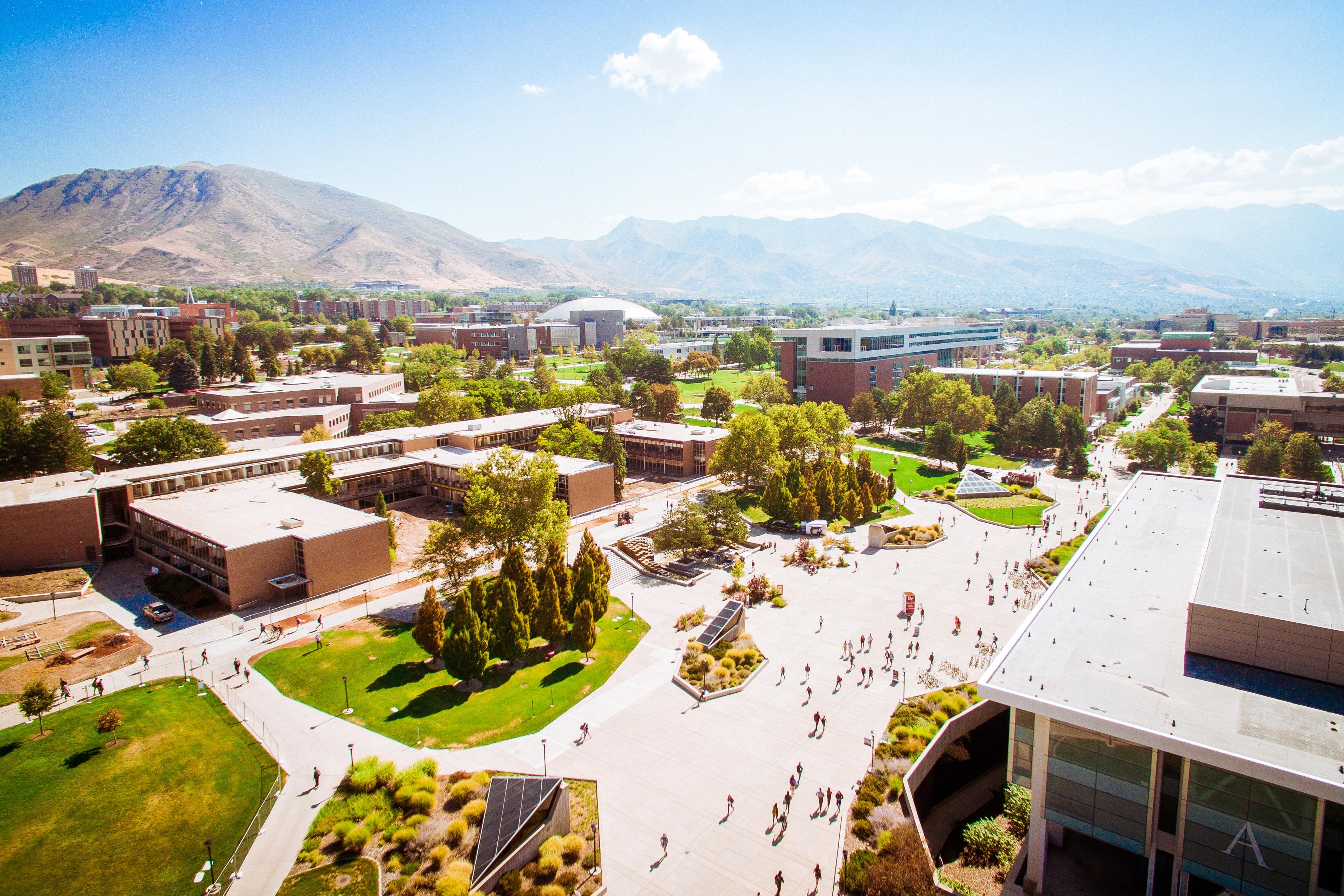
Table of Contents
College fairs are an essential part of the college search process. They provide an excellent opportunity for students to gather information, network with college representatives, and learn more about the admissions process. In this article, we'll explore the importance of attending college fairs and how you can make the most of these opportunities.
Why attending college fairs is important for your future
Attending college fairs is a crucial step in the college search process. It's an opportunity to connect with representatives from colleges and universities all over the world, learn more about their programs, and ask any questions that may arise. College fairs also give students a chance to gain insight into the admissions process, including what colleges are looking for in applicants and how to stand out from the crowd.
Moreover, attending college fairs can also help students discover new and exciting opportunities that they may not have considered before. For example, they may learn about unique majors or programs that align with their interests and career goals. Additionally, students can network with other attendees and gain valuable advice from current college students or alumni. Overall, attending college fairs can provide students with a wealth of information and resources to help them make informed decisions about their future education and career paths.
How to prepare for a college fair
Before attending a college fair, it's essential to prepare. Research the fair beforehand to see which colleges will be in attendance. This will allow you to make a list of colleges you want to visit and prepare questions about their programs and admissions process. Dress professionally and bring a pad and pen to take notes. Also, bring copies of your high school transcript, test scores, and a resume to leave with college representatives.
In addition to the above tips, it's also a good idea to create a personal statement or elevator pitch to introduce yourself to college representatives. This should be a brief summary of your academic achievements, extracurricular activities, and future goals. It's also important to be open-minded and explore colleges that may not have been on your initial list. You never know what opportunities may arise from attending a college fair and speaking with representatives from various institutions.
Researching colleges before attending a fair
Researching colleges before attending a fair will give you a better idea of which colleges to explore during the event. Use online resources to learn about colleges and universities and determine which programs match your interests and goals. It's important to know what you want in a college before attending a fair so that you can make the most out of your time there.
Another benefit of researching colleges before attending a fair is that it can help you prepare questions to ask representatives from the schools you're interested in. By having a basic understanding of the college's programs and offerings, you can ask more specific questions and get a better sense of whether the school is a good fit for you.
Additionally, researching colleges beforehand can also help you narrow down your list of potential schools. With so many colleges and universities represented at a fair, it can be overwhelming to try to explore them all. By doing some research beforehand, you can focus your attention on the schools that are the best match for your interests and goals, and make the most out of your time at the fair.
Tips for navigating a crowded college fair
College fairs can be crowded, so it's essential to have a plan for navigating the event. Arrive early to make the most of your time, and try to visit less popular colleges when the fair is less crowded. Map out which colleges you want to see ahead of time to avoid getting lost. Finally, be patient and courteous, as everyone is there to learn more about the college search process.
Another helpful tip for navigating a crowded college fair is to bring a bag or backpack to carry any brochures or materials you receive from colleges. This will keep your hands free and prevent you from losing any important information. Additionally, don't be afraid to ask questions and engage with the college representatives. They are there to help you and provide information about their school, so take advantage of the opportunity to learn more about the colleges you are interested in.
Lastly, consider attending any information sessions or workshops offered at the college fair. These sessions can provide valuable insights into the college application process, financial aid, and other important topics. By attending these sessions, you can gain a better understanding of what colleges are looking for in applicants and how to make yourself stand out in the application process.
Making a good first impression with college representatives
College representatives meet with hundreds of students during a fair, so it's crucial to make a good first impression. Dress professionally, introduce yourself, and explain why you're interested in the college. Additionally, ask thoughtful questions about the college and its programs.
It's also important to do your research beforehand. Look up the college's website and familiarize yourself with their programs, campus culture, and any recent news or events. This will show the representative that you are genuinely interested in the college and have taken the time to learn about it. Additionally, be sure to bring a copy of your resume or academic transcript to give to the representative, as it can help them remember you and your qualifications.
What questions to ask at a college fair
Visiting different college booths can be overwhelming, so it's helpful to have a list of questions to ask representatives. Consider asking about the size and location of the campus, what the student body is like, and what successful students in their college typically look like. You may also want to ask about areas of study, extracurricular activities, and study abroad opportunities.
Another important question to ask is about the admissions process. You can ask about the application requirements, deadlines, and any specific criteria that the college looks for in applicants. It's also a good idea to ask about financial aid and scholarship opportunities, as well as the cost of attendance.
Additionally, you can ask about the resources and support services available to students. This can include academic advising, tutoring, career services, and mental health resources. It's important to know that the college you choose will provide the necessary support for you to succeed academically and personally.
How to follow up with colleges after the fair
After attending a college fair, it's important to follow up with representatives from the colleges you're interested in. Send a brief email thanking them for their time and reiterating your interest in their school. You may also want to ask any additional questions that you didn't get to ask at the fair.
In addition to sending an email, consider connecting with the college representatives on LinkedIn. This can help you establish a professional relationship and keep you updated on any news or events related to the college.
Another way to follow up is to schedule a campus visit. This will give you the opportunity to see the college in person and meet with representatives one-on-one. Be sure to reach out to the admissions office to schedule your visit and make any necessary arrangements.
Finding scholarships and financial aid opportunities at college fairs
Many college fairs offer seminars and workshops on financial aid and scholarship opportunities. Take advantage of these workshops and make sure to get any information on scholarships and financial aid that is offered. The more you know about financing your education, the easier it will be to make the right decisions for your future.
Networking with other students and professionals at college fairs
College fairs are not just an opportunity to network with the colleges themselves, but also with other students and professionals in attendance. Take the opportunity to chat with other students and find out which schools they're interested in and why. You may also want to connect with professionals, such as college counselors, who can offer valuable guidance and information on the admissions process.
Standing out from the crowd: making your mark at a college fair
To stand out from the crowd at a college fair, you need to do more than just collect brochures from colleges. Be enthusiastic, ask thoughtful questions, and take notes on each college that you're interested in. Make sure to follow up with representatives after the fair and show continued interest in their school.
How attending multiple college fairs can benefit your search for the right school
Attending multiple college fairs allows you to connect with a variety of colleges and universities. It also gives you the opportunity to experience different types of college fairs, including large national events and smaller regional events. Attending multiple college fairs can help you to find the right school by exposing you to a range of options and giving you the ability to compare and contrast different colleges and programs.
Overall, attending college fairs is an essential part of the college search process. By being prepared, asking thoughtful questions, and following up, you can make the most of these networking opportunities and find the college that's right for you.



















